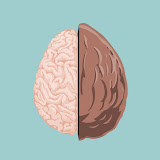Yoga Nidra (conscious relaxation)
Discover the Power of Yoga Nidra: Deep Relaxation for the Body and Mind Yoga Nidra: Unlocking Deep Relaxation and Inner Calm Yoga Nidra, often referred to as “yogic sleep,” is a powerful relaxation technique that guides practitioners into a state of profound rest while remaining conscious. Unlike traditional meditation, Yoga Nidra is practiced lying down, […]
How To Be The LOVE You Seek – Dr. LePera & Dr. Ramani

Finding the Love Within Personal Vulnerability and Professional Integration Sharing personal experiences can deeply enrich professional practice, fostering genuine connections with clients. A poignant example is the speaker’s story about their mother’s illness during the pandemic. This vulnerable moment underscored the importance of blending personal life with professional duties, allowing psychologists to bring their whole […]
Suicide: 7 Realizations That Saved Me – Kyle Cease

7 Life-Saving Insights on Overcoming Suicidal Thoughts Suicide is a difficult and taboo topic, but it’s crucial to address it openly and honestly. Kyle Cease, a spiritual speaker who has faced suicidal thoughts many times, shares seven profound realizations that helped him overcome these dark moments. These insights, although not from a psychiatrist, can offer […]
How to Understand Your Own Thoughts: A conversation with Kristina Furia

How to Understand Your Own Thoughts Introduction to Metacognition Metacognition is the practice of noticing your thoughts on an ongoing basis. As you go through your day, you may find yourself engaging in habitual ways of thinking and functioning, often operating on autopilot. This practice helps break that cycle, fostering self-awareness and intentionality in your […]
Become a Self-Healer and Break Free of Emotional Cycles – LePera & Howes

Become a Self-Healer and Break Free of Emotional Cycles In a recent episode of the School of Greatness podcast, Lewis Howes sat down with Dr. Nicole LePera to discuss the transformative journey of becoming a self-healer. Dr. LePera, a psychologist and author, shared insights on how individuals can break free from emotional cycles and limiting […]
PSYCHOLOGIST Reveals: How to HEAL Your LIFE – Dr. Nicole LePera & Lewis Howes

Dr. Nicole LePera Shares Transformative Insights In a revealing discussion, Dr. Nicole LePera delves into the intricacies of healing one’s life. Her insights cover a range of topics from self-love to trauma bonding, offering a holistic approach to mental and emotional well-being. Shop Dr. Nicole LePera On Amazon Transform Your Life: Dr. Nicole LePera’s Guide […]
Therapy in a Nutshell by Emma McAdam

Unlocking Mental Wellness: Therapy in a Nutshell by Emma McAdam Bio of Emma McAdam: Emma McAdam is a licensed therapist and mental health advocate with over a decade of experience in the field. With a passion for helping individuals achieve mental wellness, Emma specializes in providing compassionate therapy and guidance to those navigating life’s challenges. […]
